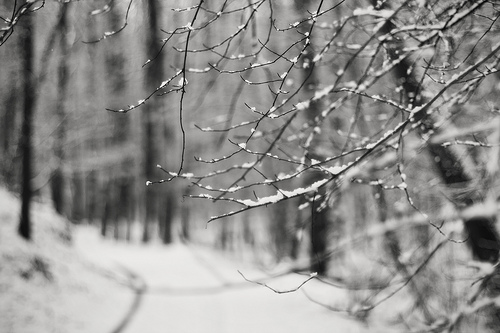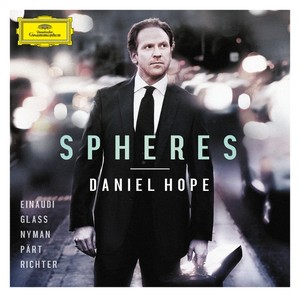As we await today’s meteorological prediction from the groundhog, let’s enjoy the icy sonic chill of “Winter” from The Four Seasons, Vivaldi’s collection of violin concertos composed around 1720. This piece can sound radically different from one performance to another, depending on choices of tempi and style. The concerto’s programatic elements remain: the orchestra’s frigid opening ponticello (a raspy sound created by playing as close to the bridge as possible), flying spiccato bowing suggesting pellets of frozen precipitation hitting a hard surface. The final movement drifts off into the solitude of a bleak, desolate winter landscape.
Here is Gidon Kremer’s 1981 performance with the English Chamber Orchestra:
[unordered_list style=”tick”]
[/unordered_list]
Vivaldi Remixed
In Baroque performances, ornamentation added an element of spontaneity. The notes on the page sometimes became a blueprint for improvisation, similar to chord progressions for a jazz musician. German-born British composer Max Richter (b. 1966) has pushed this tradition even further with his Recomposed Four Seasons (2012). Vivaldi’s music becomes the raw material for a new piece rooted in the looping repetition of minimalism and electronic dance music. Fragments of the original composition emerge and find new lives of their own. It’s a musical conversation spanning three hundred years. Listen to the complete work here. Pay attention to the way the music slowly and gradually develops. If you feel inspired, share your thoughts about the music in the thread below.
Here is Daniel Hope with the Orchestra L’arte del Mondo in 2013:
https://www.youtube.com/watch?v=gDuzn9z5jrk
[unordered_list style=”tick”]
[/unordered_list]
As a bonus, here is Max Richter’s “On the Nature of Daylight” and Written on the Sky from Blue Notebooks (2004). Also listen to Luminous from the soundtrack of the 2011 film Perfect Sense (The Last Word) and Rainlight, composed for Random International’s Rain Room, a 2012 art instillation at London’s Barbican Centre.


 Musica universalis, or the “music of the spheres” is the ancient philosophical concept that the movements of the sun, moon and planets generate celestial vibrations. Pythagoras accidentally discovered that a musical pitch sounds in direct proportion to the length of the string which produces it. He was interested in the concept of universal harmony rooted in mathematical ratios-a unifying cosmic “music.”
Musica universalis, or the “music of the spheres” is the ancient philosophical concept that the movements of the sun, moon and planets generate celestial vibrations. Pythagoras accidentally discovered that a musical pitch sounds in direct proportion to the length of the string which produces it. He was interested in the concept of universal harmony rooted in mathematical ratios-a unifying cosmic “music.”